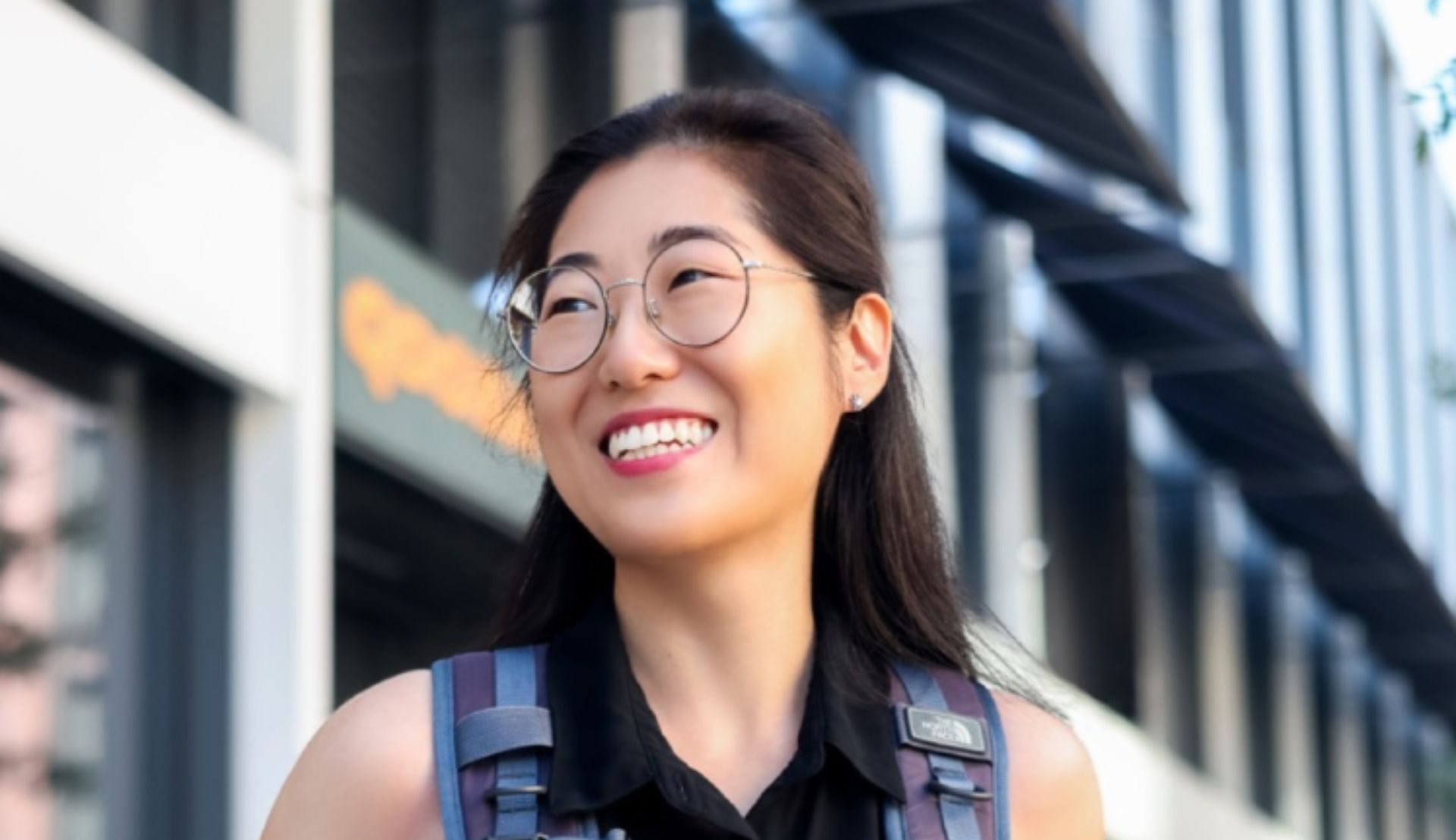At Rutgers-Newark, graduate student Mi Hyun Yoon found a mentor who helped inspire her to research Korean American history—rarely the focus of academic study—and a place to pursue her goals as an activist.
Yoon, a Ph.D candidate in American Studies, chose Rutgers because of the first-rate faculty in the Graduate Program in American Studies. She is enrolled in the Graduate School-Newark and expects to receive her doctorate in 2024.
A role model for Yoon has been professor Kornel Chang in the History Department of the School of Arts and Sciences-Newark. Chang is an expert in the intersection of North American and European colonialism in the Asian and Pacific world, including Korea, and an authority on race, migration and labor in the Americas.
“When I was applying to doctoral programs, I sent emails to potential advisors, and out of everyone I contacted, he was most excited about my application and offered to talk to me on the phone even before I applied. I knew that he would be super supportive of what I wanted to research,’’ said Yoon, who received her bachelor’s degree at Rutgers-New Brunswick.
Yoon’s work has been enriched by the chance to collaborate with leading Asian-American scholars at Rutgers. “It’s so amazing to find faculty who’ve had similar experiences to mine,’’ said Yoon, who teaches courses in American Studies and Asian American Studies at RU-N and Rutgers-New Brunswick. “I’ve been really fortunate to come here and have a dissertation committee that’s fully Asian American and understands why I’m doing the research I’m doing. They know that I’m making a contribution. They are experts and superstars in their respective fields, who give me more context and information.”
She added, “I could have gone anywhere else in the world and wouldn’t have found as great a program and dissertation committee as I did at Rutgers-Newark.”
Yoon immigrated to the U.S. from South Korea as a child and grew up in New Jersey. At Rutgers, she majored in journalism and East Asian Studies and minored in history and political science. She obtained her master’s degree in political science at Seoul National University, which is considered the most prestigious university in South Korea. This experience helped fuel her interest in Korea and its relationship with the U.S. from a humanities perspective. “I’m broadly interested in the Korean diaspora in the United States and how I got to the United States through the factors at play between the two countries,’’ she says.
Growing up, she realized that most Americans know little about the culture and political history of Korean Americans, who didn’t begin immigrating to the U.S. in significant numbers until 1903. Asian nationalities with a longer history in the U.S., such as Chinese and Japanese Americans, seemed to have more of a presence in American society and popular culture, while the politics of China and Japan have received greater attention in the media and academia, although in recent years, that’s started to change, said Yoon.
“Because of K-Pop and other Korean media cultural products, like the drama ‘Squid Games”’ and the film, ‘Parasite,’’ it’s been more the case that people here are starting to recognize Korean and Korean American identity,’’ she said.
But the politics of Korea and its history are still unfamiliar to many Americans, she said. “In 1945, the Korean people regained their liberation after 35 years of Japanese colonization. But Korea wasn’t fully liberated because U.S. military forces occupied the South while Soviet forces occupied the North. An arbitrary division was decided by US state officials without any Korean input because it would keep Seoul, the capital of Korea, under U.S. influence, and the Soviets agreed,’’ she explained. “When the Koreans thought they could regain their freedom and have their own agency and jurisdiction, they couldn’t do it because of these imperialist powers.’’
Since her undergraduate years, Yoon has been an advocate and activist for Asian Americans, not only pushing for Asian American Studies to be declared a major at Rutgers-New Brunswick but also fighting against anti-Asian hate, particularly after Asian Americans were attacked following the start of the COVID-19 pandemic in the U.S. She has also worked on behalf of other marginalized groups, including as a writer and translator for the Korean version of the “Letters for Black Lives.”
“I’m very much about getting rid of hate in general, whether that’s racism, homophobia or anti-semitism,’’ said Yoon, who has served as the president of Graduate Student Governing Association, worked as a resident assistant at RU-N, and is a staff member at the Queer Newark Oral History Project. “We all have a duty to call out these actions. Now I have the education and the vocabulary to be doing it in a more systematic manner.’’
Rutgers-Newark’s tradition and culture of activism have been a good fit, she said. “What I love about the American Studies program is people are doing projects they feel passionate about in terms of making the world a better place. I very much believe in those values and they correspond with mine.’’
She believes Rutgers-Newark’s close ties to the city have allowed those values to flourish. “What is amazing about being here is that we have such a connection to the locality that we’re based in. Newark is very much integrated into the campus and there are many social justice initiatives here.’’
This article originally appeared on the Rutgers-Newark website.

